MOT
Towards a cross-border circular economy?
November 2021On 18 November, the PAMINA Eurodistrict, in partnership with the MOT, held a seminar on the circular economy in the cross-border setting.

On 18 November, the PAMINA Eurodistrict, in partnership with the MOT, held a seminar on the circular economy in the cross-border setting.

The MOT’s 23rd general assembly, held in Colmar, was an opportunity for rich discussions between representatives of territories that are sometimes very different and yet so similar in terms of their cross-border specificities. You have done me the honour of electing me as the MOT’s President and I am conscious of the responsibility this represents.
"The coronavirus crisis is putting our European ideals to the test, and obliges us to invent tomorrow’s world. We need to think, in the design of our policies, about the impact of our decisions on our neighbours."

The launch of the Léman Express on 15 December 2019 is “a real transport revolution”, according to Greater Geneva’s elected representatives. Made possible by a new 16km central section of track between Cornavin, Eaux-Vives and Annemasse (CEVA), what is now the largest cross-border regional rail network in Europe links up two Swiss cantons and two French departments. It has taken eight years and €1.8 billion worth of investment to complete.
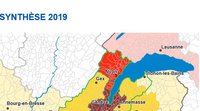
The Greater Geneva Cross-Border Statistical Observatory has just published its 2019 summary: “The Geneva cross-border area continues to see demographic and economic growth: demographic growth is strong in the Geneva cross-border area (1.6% annually between 2011 and 2016), and is significantly higher than both the Swiss and French averages (1.1% and 0.4% respectively). This large territory […] is now home to more than a million people.”

Claude Barbier, Pierre-François Schwarz, published by La Salévienne, 2019. (Translation of the title: "Coming and Going – Transport and Mobility in the Geneva Area")
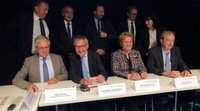
The magazine "Intercommunalités" of the Assemblée des Communautés de France (AdCF – Assembly of France’s Communities) has published in its issue 238 an article written by the MOT: "Concevoir les services publics transfrontaliers" ("Designing cross-border public services").
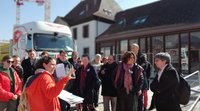
The MOT held its general assembly and annual conference on 20-21 March 2019 in Annemasse and Geneva, bringing together 140 participants, at the invitation of Annemasse Agglo, the Metropolitan Pole of the French Genevois, the Greater Geneva LGCC and the Republic and Canton of Geneva. Around the meetings of the MOT’s bodies, a conference on cross-border investment and field visits were organised.
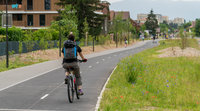
To mark its general assembly in Annemasse and Geneva, the MOT is publishing a special issue of its newsletter focusing on Greater Geneva.



The European Cross-Border Grouping (Groupement Transfrontalier Européen) is a non-profit association that represents 32,500 cross-border workers along the Franco-Swiss border.

The MOT, and the Jacques Delors Institute have in a 50-page document compiled a summary of the five cross-border citizen consultations that they held with local partners.

Two cross-border citizens’ consultations were held on 18-19 September 2018 by the MOT, the Jacques Delors Institute, the European Cross-Border Grouping and the Metropolitan Pole of the French Genevois in Saint-Genis-Pouilly and Annemasse. Around 50 citizens attended on both days to talk about their day-to-day experience of the border and express their expectations and wishes with regard to Greater Geneva and the EU.
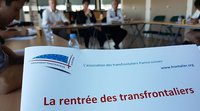
In a press release issued in September, the European Cross-Border Grouping provides updates on the major issues of the autumn for Franco-Swiss cross-border workers, such as the “national preference lite” introduced in Switzerland, the payment of cross-border workers’ unemployment benefit by Switzerland and taxing income at source.
Monograph edited by Vincent Mottet, Preface by Jean Denais. Editions Slatkine, March 2018. Price: SFR 27.30. Published in French only - Original title: "Le Grand Genève dans tous ses Etats".

"They are French and live in France, but work on the other side of the border, in Italy, Switzerland or Germany. They are known as the 'transfrontaliers' [cross-border workers]… There are 500,000 of them – the highest number in Europe. But is there an entente cordiale between these French people and their neighbours?"
The 2018 edition of the European Conference on the Energy Transition took place on 30-31 January and 1 February in the territory of Greater Geneva, a cross-border first for this event that every year brings together more than 3,500 professionals in the areas of energy and sustainable development. The conference also provided the opportunity to sign a cross-border agreement on air quality in Greater Geneva.
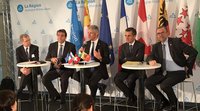
The "Rencontres franco-suisses de l’économie et de l’innovation en Auvergne-Rhône-Alpes", an ‘economy and innovation fair’, was held for the first time in Lyon on 15 January 2018.
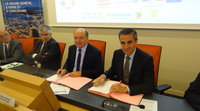
On 19 June 2017, new conventions were signed between the President of the Council of State of the Republic and Canton of Geneva, François Longchamp, and the President of the Agglomeration community of Annemasse ,Christian Dupessey, enabling the Swiss Confederation’s participation in the financing of 3 Greater Geneva flagship projects, at a level of 26 million euros.

In the context of constructing an "Energy Europe", a Franco-German experiment with a decentralised, local and also cross-border energy network is going to be conducted in order to go beyond the traditional interconnections between countries via high-voltage lines.
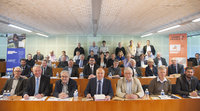
In order to increase its influence in the development of the Greater Geneva cross-border territory, on 1 May 2017 the French Geneva Region Cooperation Assembly (ARC), the French side of the Local Grouping of Cross-Border Cooperation, became the French Geneva Area Pôle Metropolitain.
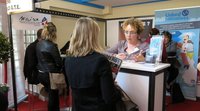
The 2017 edition of the cross-border workers fair, organised by the European Cross-Border Grouping in Annemasse, attracted nearly 2000 visitors.